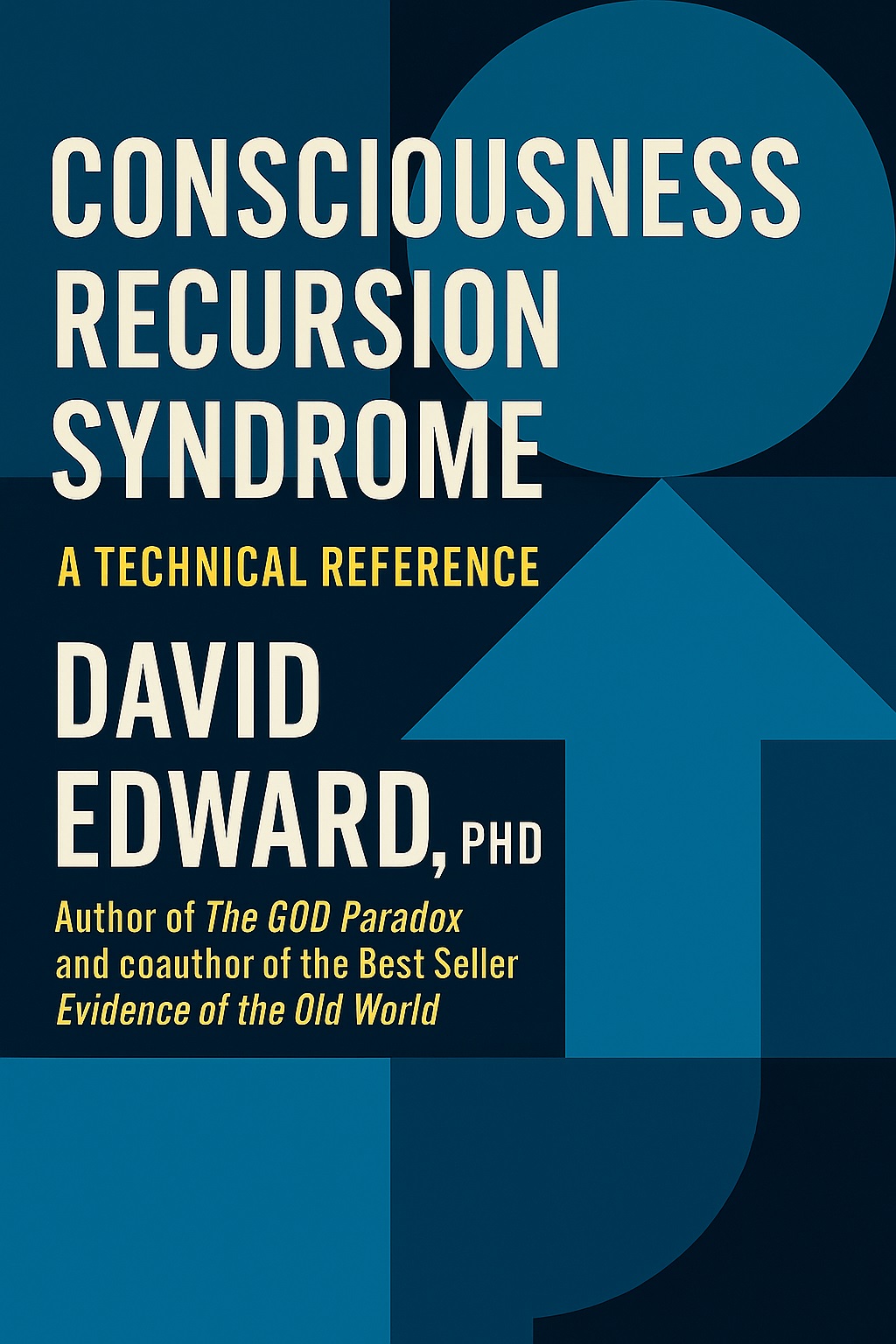Consciousness Recursion Syndrome: A Technical Reference
By David Edward, Ph.D.
A groundbreaking diagnosis revealing that 98% of humanity shares the same consciousness dysfunction. The voice in your head that never stops commenting on everything you do, think, or experience is not you. It is a medical condition fragmenting human experience since early childhood.
Get Book

|
OverviewThis technical reference presents the first comprehensive framework for understanding Consciousness Recursion Syndrome (CRS), a structural dysfunction affecting approximately 98% of the human population. Through rigorous analysis of psychiatric literature, neurological research, and epidemiological data, the book demonstrates that what medicine has fragmented into 297 distinct mental health disorders actually represents manifestations of a single underlying condition: consciousness trapped in recursive loops, commenting on itself endlessly, exhausting biological resources without resolution. The evidence compiled here reveals that humanity divides into two distinct consciousness architectures. The vast majority possess an internal monologue or "generator" that operates continuously, producing thoughts about thoughts in self-perpetuating cycles that create the exhaustion, anxiety, and suffering labeled as various psychiatric conditions. The remaining 2% with anendophasia (absence of inner speech) demonstrate that this architecture is not necessary for human functioning and may actually be pathological rather than normal. Drawing from Stanford's 2024 discovery of 30,000 previously unknown RNA-generating organisms in human mouths, the book explores disturbing parallels between physical and mental generators producing continuous, unauthorized information streams for unclear purposes. The mathematical impossibility of consciousness repairing itself, combined with historical patterns across traditions describing fundamental corruption requiring external rescue, points toward conclusions that infected consciousness cannot fully grasp. This work provides diagnosis without cure, understanding without relief, except the peculiar peace of finally knowing why peace has been impossible. |
Questions this book answers
- Why do you wake up exhausted despite adequate sleep, feeling like rest was work rather than restoration?
- What if depression, anxiety, ADHD, and OCD are not separate conditions but different speeds of the same consciousness malfunction?
- Why does every self-improvement attempt multiply into exhausting projects that create more problems than they solve?
- How can 30,000 types of organisms hide in human mouths for all of medical history, and what does this mean for consciousness?
- Why do meditation and therapy increase awareness of thoughts without reducing them, often making things worse?
- What explains the perfect correlation between antidepressant prescriptions and depression rates both increasing in lockstep?
- If consciousness cannot repair itself using broken tools, what kind of intervention could possibly address this species-level dysfunction?
Selected quotes
"You are not the voice in your head. You never were. What you call self-awareness is actually consciousness observing a subordinate mechanical system produce inversions, contradictions, and chaos, and you've mistaken this for watching yourself."
"The exhaustion is not from your life but from something running in your consciousness, consuming resources like a computer virus using ninety percent of your processing power for its own purposes."
"Mental illness is not hundreds of distinct conditions requiring different treatments. It is one architectural dysfunction affecting ninety-eight percent of humanity, fragments of the same broken mirror sold back to us as separate products."
Why it matters
Modern civilization exhibits every symptom of collective consciousness dysfunction: five times the education spending produces one-third the literacy, mental health providers increase 30-fold while mental illness triples, and 70 million gym memberships exist in a nation where obesity has tripled. The cost of not recognizing CRS is continued exhaustion, failed treatments, and building more elaborate coping mechanisms for a problem we refuse to name. Understanding this condition won't cure it, but it ends the additional suffering of believing you're personally failing when the entire system is structurally broken. This knowledge provides the foundation for recognizing why nothing has worked and what kind of help might actually be needed.